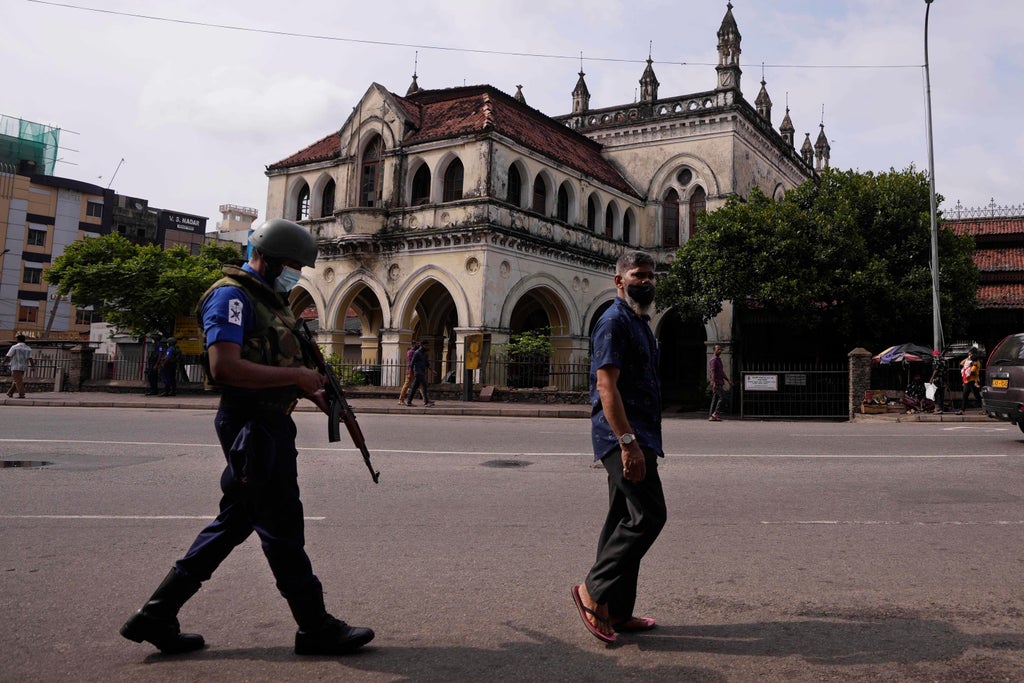
Five-time former Sri Lankan Prime Minister Ranil Wickremesinghe will be reappointed on Thursday in an effort to bring stability to the island nation, engulfed in a political and economic crisis, a party official said.
“He is being sworn in as prime minister this evening because a number of members of Parliament have asked him to take over and solve the country's problems,” said Vajira Abeywardena, an official of the United National Party, which Wickremesinghe heads.
Abeywardena said more than 160 lawmakers in the 225-member Parliament support Wickremesinghe’s selection, but this could not be verified independently. There was no immediate comment from President Gotabaya Rajapaksa, who has the power to appoint the prime minister.
If Rajapaksa selects Wickremesinghe, it would be seen an attempt to end violence triggered by the crisis and restore international credibility as his government negotiates a bailout package with the International Monetary Fund and debt restructuring plans.
The president’s brother, Mahinda Rajakapsa, resigned as prime minister on Monday following violent attacks by their supporters on peaceful anti-government protesters. His resignation automatically dissolved the Cabinet, leaving an administrative vacuum.
Authorities deployed armored vehicles and troops in the streets of the capital on Wednesday after the attacks on the protesters triggered a wave of violence across the country. Nine people died and more than 200 have been injured.
Security forces have been ordered to shoot people deemed to be participating in the violence, as sporadic acts of arson and vandalism continue despite a strict nationwide curfew that began Monday evening.
The protesters have been demanding the resignations of President Gotabaya Rajapaksa and his brother over the economic crisis.
Sri Lanka is nearly bankrupt and has suspended repayments of $7 billion in foreign loans due this year. The IMF has said any short or long-term assistance depends on the outcome of talks with creditors on loan restructuring. Sri Lanka must repay about $25 billion in foreign loans by 2026 out of a current total foreign debt of $51 billion.
The finance ministry said earlier this month that the country's usable foreign reserves have plummeted to just $25 million.
The foreign currency shortage has forced a sharp decline in imports, leading to severe shortages of essentials such as fuel, cooking gas, food and medicine. For months, people have had to stand in long lines to buy limited supplies, with many returning empty handed.
Wickremesinghe, 73, has been in Parliament for 45 years. He has wide international connections and is seen as a capable negotiator.
His political party split in 2019 amid a leadership crisis and most senior members left to form a new party, which is currently the country’s main opposition.
Wickremesinghe's reputation was damaged during his previous term as prime minister, when he was in a difficult power sharing arrangement with former President Maithripala Sirisena. An internal conflict and communication breakdown between him and Sirisena was blamed for intelligence lapses that led to Easter Sunday suicide bomb attacks in 2019 that killed more than 260 people.
He was also accused of shielding a friend he appointed as head of the Central Bank from allegations of insider trading.







